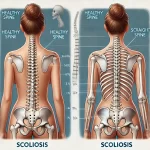
Gastrointestinal (GI) cancers encompass a group of malignancies that arise within the digestive system, encompassing organs such as the esophagus, stomach, liver, pancreas, gallbladder, small intestine, colon, and rectum. These cancers occur when abnormal cells within these organs proliferate uncontrollably.
Risk factors for developing GI cancers include lifestyle choices like smoking and excessive alcohol consumption, an unhealthy diet characterized by high red and processed meat intake and low fruit and vegetable consumption, obesity, and physical inactivity. Genetic predisposition, such as a family history of certain GI cancers, and infections like Helicobacter pylori (H. pylori) bacteria in the stomach and hepatitis viruses in the liver, can also increase the risk.
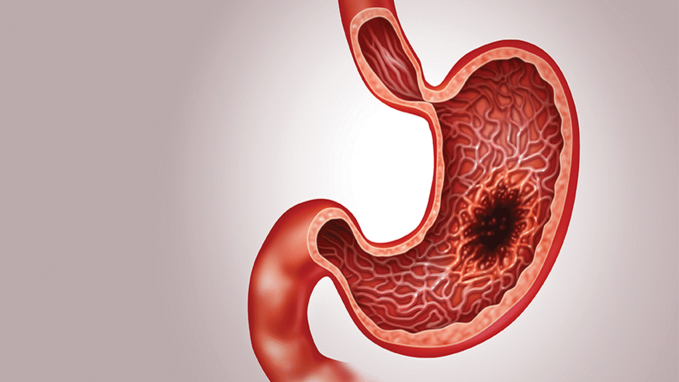

Esophageal cancer is a type of gastrointestinal cancer that develops in the esophagus, the muscular tube that connects the throat to the stomach. It occurs when abnormal cells in the esophagus grow uncontrollably. Common symptoms of esophageal cancer include difficulty swallowing (dysphagia), chest pain, hoarseness, and unexplained weight loss. Risk factors for esophageal cancer include smoking, excessive alcohol consumption, obesity, and gastroesophageal reflux disease Early detection and prompt treatment are crucial for improving outcomes for individuals with esophageal cancer. If you experience any concerning symptoms, it's essential to consult a healthcare professional for proper evaluation and diagnosis.
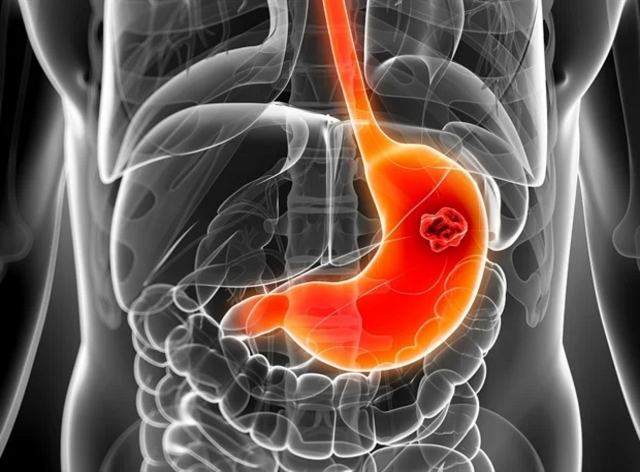
Liver cancer is a type of gastrointestinal cancer that develops within the liver. It can arise as a primary cancer, originating within the liver itself, or as a secondary cancer, spreading from other parts of the body. Common symptoms of liver cancer may include: Abdominal pain or discomfort This can manifest as a dull ache or sharp pain in the upper right abdomen. Unexplained weight loss Significant weight loss without changes in diet or exercise. Loss of appetite Feeling less interested in eating or feeling full quickly. Fatigue Feeling unusually tired or weak. Jaundice Yellowing of the skin and eyes due to a buildup of bilirubin in the blood. Swollen abdomen Accumulation of fluid in the abdomen. Nausea and vomiting Frequent episodes of nausea or vomiting.
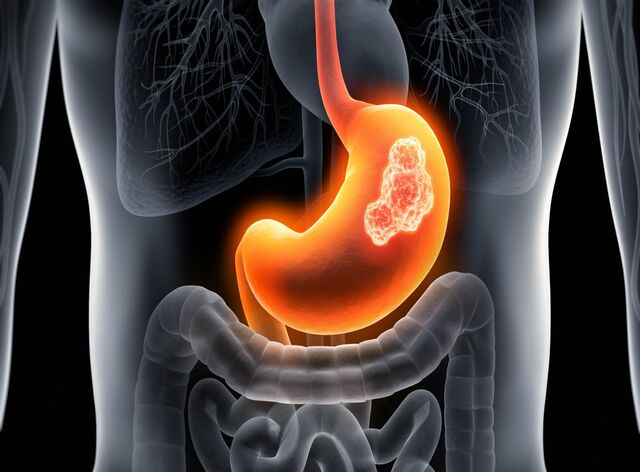
Stomach cancer, also known as gastric cancer, is a type of gastrointestinal cancer that arises within the stomach lining. It occurs when abnormal cells within the stomach grow uncontrollably. Common symptoms of stomach cancer may include Abdominal discomfort or pain This can manifest as a dull ache, burning sensation, or feeling of fullness after eating small amounts. Unexplained weight loss Significant weight loss without changes in diet or exercise. Loss of appetite Feeling less interested in eating or feeling full quickly. Nausea and vomiting Frequent episodes of nausea or vomiting. Indigestion or heartburn Experiencing frequent heartburn or indigestion. Fatigue Feeling unusually tired or weak. Black stools This can indicate bleeding in the upper digestive tract.
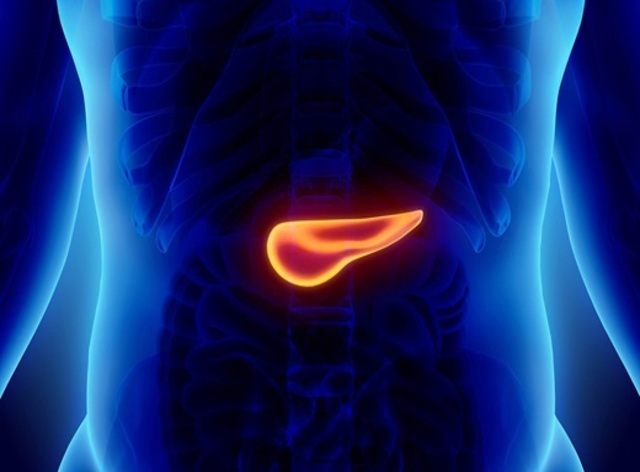
Pancreatic cancer is a serious type of gastrointestinal cancer that arises within the pancreas, a vital organ located behind the stomach that plays crucial roles in digestion and blood sugar regulation. This cancer develops when abnormal cells within the pancreas grow uncontrollably. Common symptoms of pancreatic cancer may include Abdominal pain This can manifest as a dull ache or a more severe, constant pain that may radiate to the back. Jaundice Yellowing of the skin and whites of the eyes due to a buildup of bilirubin in the blood. Weight loss Unexplained weight loss, even without changes in diet or exercise. Loss of appetite: Feeling less interested in eating or feeling full quickly. Light-colored stools: Due to a lack of bile reaching the intestines. Dark urine: A result of the buildup of bilirubin in the urine.
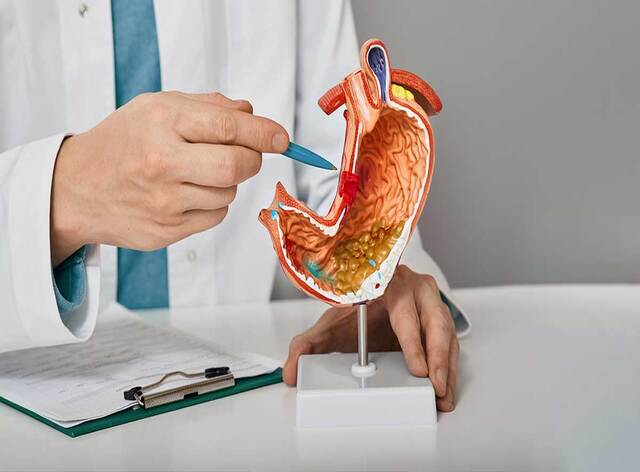
Colorectal cancer, a type of gastrointestinal cancer, arises in the colon or rectum, parts of the large intestine. It develops when abnormal cells in these organs grow uncontrollably. Common symptoms may include changes in bowel habits (diarrhea, constipation, or a change in stool consistency), blood in the stool, abdominal pain or cramping, unexplained weight loss, and fatigue. However, it's important to note that many people with early-stage colorectal cancer experience no symptoms. Risk factors for colorectal cancer include age, a family history of the disease, a personal history of certain other types of cancer, and certain inflammatory bowel diseases. Lifestyle factors such as a diet high in red and processed meats, obesity, smoking, and excessive alcohol consumption can also increase the risk. Regular screening, such as colonoscopies, is crucial for early detection and prevention of colorectal cancer. If you experience any concerning symptoms, it's essential to consult a healthcare professional for proper evaluation and diagnosis.
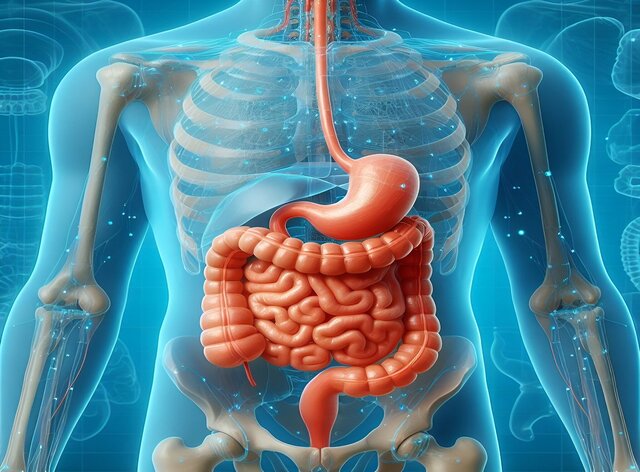
Small intestine cancer is a relatively rare type of gastrointestinal cancer that develops within the small intestine, the long, coiled tube that connects the stomach to the large intestine. It occurs when abnormal cells within the small intestine grow uncontrollably. Common symptoms of small intestine cancer may include Abdominal pain or discomfort This can manifest as cramping, bloating, or a dull ache in the abdomen. Changes in bowel habits These can include diarrhea, constipation, or changes in stool consistency. Unexplained weight loss Significant weight loss without changes in diet or exercise. Fatigue Feeling unusually tired or weak. Nausea and vomiting Frequent episodes of nausea or vomiting. Bleeding from the rectum Blood in the stool.
Symptoms of GI cancer depend on the location and stage of the disease but may include

Persistent abdominal pain can be a concerning symptom, and while many causes are benign, it’s crucial to consider the possibility of gastrointestinal (GI) cancer. While not always an early symptom, persistent abdominal pain can occur in various GI cancers, such as stomach, pancreatic, or colorectal cancer. The nature of the pain can vary, from dull aches to sharp, cramping sensations.
It’s important to remember that abdominal pain can arise from numerous other conditions, and this information does not constitute medical advice. If you experience persistent or concerning abdominal pain, it’s essential to consult a healthcare professional for proper evaluation and diagnosis to rule out any serious underlying conditions, including GI cancers.
Unexplained weight loss, particularly when significant and unintentional, can be a red flag for various health conditions, including gastrointestinal (GI) cancers. When cancer develops in the digestive system, it can interfere with the body’s ability to absorb nutrients, leading to unintentional weight loss.
Unexplained weight loss can occur in various GI cancers, such as stomach cancer, pancreatic cancer, and colorectal cancer. However, it’s crucial to remember that weight loss can have numerous other causes, including stress, hormonal imbalances, and certain medications.


Difficulty swallowing, also known as dysphagia, can be a significant symptom of certain gastrointestinal (GI) cancers, particularly those affecting the esophagus, such as esophageal cancer.
When cancer develops in the esophagus, it can narrow the passageway, making it difficult for food or liquids to pass through. This can lead to a feeling of food getting stuck, choking, or discomfort during swallowing.
It’s important to note that difficulty swallowing can also be caused by other conditions, such as acid reflux, strictures, and neurological disorders.
If you experience persistent or worsening difficulty swallowing, it’s crucial to consult a healthcare professional for proper evaluation and diagnosis to rule out any underlying medical conditions, including GI cancers.
Nausea and vomiting can be symptoms of various conditions, including some gastrointestinal (GI) cancers. While not specific to cancer, persistent nausea and vomiting, especially when accompanied by other concerning symptoms, should prompt a medical evaluation.
In the context of GI cancers, nausea and vomiting can occur due to several factors, such as:


Blood in the stool, also known as rectal bleeding, can be a symptom of various gastrointestinal (GI) conditions, including colorectal cancer. While not always indicative of cancer, it’s crucial to consult a healthcare professional to investigate the cause.
Colorectal cancer can cause bleeding in the stool as the tumor grows and may erode the lining of the colon or rectum. The appearance of blood can vary, from bright red to dark and tarry, depending on the source of the bleeding.
It’s important to remember that blood in the stool can have numerous other causes, such as hemorrhoids, anal fissures, diverticular disease, and inflammatory bowel disease.
A change in bowel habits can be a significant symptom of various gastrointestinal (GI) conditions, including colorectal cancer. These changes can include.
While these changes can have various causes, including diet, stress, and other medical conditions, they should not be ignored. If you experience persistent or concerning changes in your bowel habits, it’s crucial to consult a healthcare professional for proper evaluation and diagnosis to rule out any underlying medical conditions, including GI cancers.
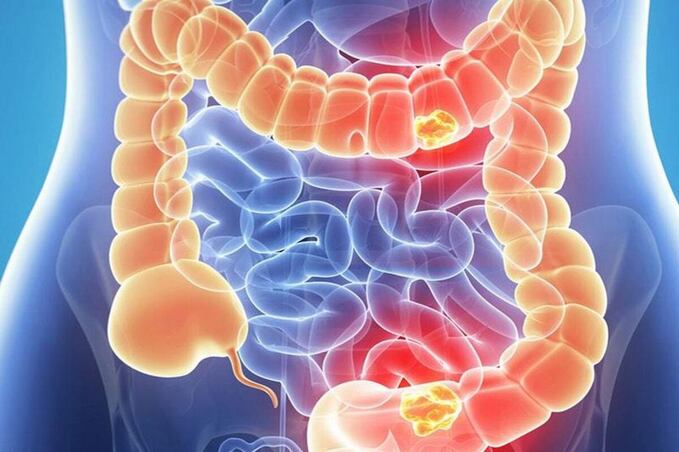

Lorem ipsum dolor sit amet, consectetur adipiscing elit. Ut elit tellus, luctus nec ullamcorper mattis, pulvinar dapibus leo.

Lorem ipsum dolor sit amet, consectetur adipiscing elit. Ut elit tellus, luctus nec ullamcorper mattis, pulvinar dapibus leo.

Lorem ipsum dolor sit amet, consectetur adipiscing elit. Ut elit tellus, luctus nec ullamcorper mattis, pulvinar dapibus leo.

Lorem ipsum dolor sit amet, consectetur adipiscing elit. Ut elit tellus, luctus nec ullamcorper mattis, pulvinar dapibus leo.

Lorem ipsum dolor sit amet, consectetur adipiscing elit. Ut elit tellus, luctus nec ullamcorper mattis, pulvinar dapibus leo.

Endoscopy and colonoscopy are important diagnostic procedures for detecting gastrointestinal (GI) cancers. Endoscopy allows for direct visualization of the upper GI tract, while colonoscopy examines the colon and rectum. These procedures can help identify abnormalities, such as polyps or tumors, which can be biopsied for further evaluation. Early detection through these procedures is crucial for improving outcomes for individuals with GI cancers.
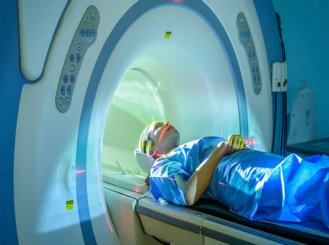
Imaging tests like CT scans, MRI scans, and PET scans play a crucial role in diagnosing and staging gastrointestinal (GI) cancers. These tests provide detailed images of the internal organs, helping to identify the location, size, and extent of the tumor. They can also help determine if the cancer has spread to other parts of the body, aiding in treatment planning and prognosis.

A biopsy is a medical procedure where a small sample of tissue is removed from the body for examination under a microscope. In the context of gastrointestinal (GI) cancers, a biopsy is crucial for diagnosis. During procedures like endoscopy or colonoscopy, a small piece of tissue from a suspicious area (like a polyp or a tumor) is removed and sent to a pathologist for analysis. This examination can determine if the tissue is cancerous and, if so, the specific type of cancer.
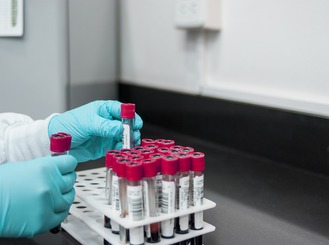
Blood tests, including tumor marker tests, can be helpful in the diagnosis and monitoring of certain gastrointestinal (GI) cancers. Tumor markers are substances produced by cancer cells that can be detected in the blood. While not always specific to cancer, elevated levels of certain tumor markers, such as CEA (carcinoembryonic antigen) for colorectal cancer, can indicate the presence of cancer and help monitor treatment response.
Maintaining a healthy diet and lifestyle plays a crucial role in reducing the risk of developing gastrointestinal (GI) cancers. A balanced diet rich in fruits, vegetables, and whole grains provides essential nutrients and antioxidants that protect cells from damage. Limiting the consumption of red and processed meats, which have been linked to an increased risk of colorectal cancer, is also important.
In addition to a healthy diet, regular physical activity is essential. Aim for at least 150 minutes of moderate-intensity aerobic activity or 75 minutes of vigorous-intensity aerobic activity per week. Maintaining a healthy 1 weight is also crucial, as obesity is a significant risk factor for several GI cancers.

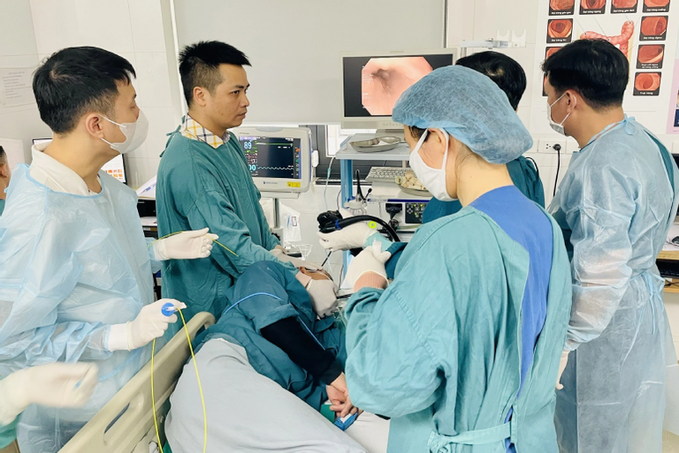
Regular screenings are crucial for the early detection and prevention of gastrointestinal (GI) cancers.
Early detection through regular screening significantly improves the chances of successful treatment and increases the likelihood of a favorable outcome for individuals with GI cancers.
Avoiding tobacco use in any form (smoking, chewing, vaping) is crucial for reducing the risk of various gastrointestinal (GI) cancers, including esophageal, stomach, and pancreatic cancer. Tobacco contains numerous harmful chemicals that can damage DNA and increase the risk of cancer development.
Similarly, excessive alcohol consumption significantly increases the risk of several GI cancers, particularly esophageal and liver cancer. Limiting alcohol intake or abstaining from alcohol altogether is highly recommended for reducing the risk of these cancers.
By making these lifestyle changes, individuals can significantly lower their risk of developing GI cancers and improve their overall health.

Indian Health Adviser (IHA) is a healthcare facilitator seeking to make health and wellness easier for people of international residents, their families, and their friends.
Designed by Acmeinfolabs